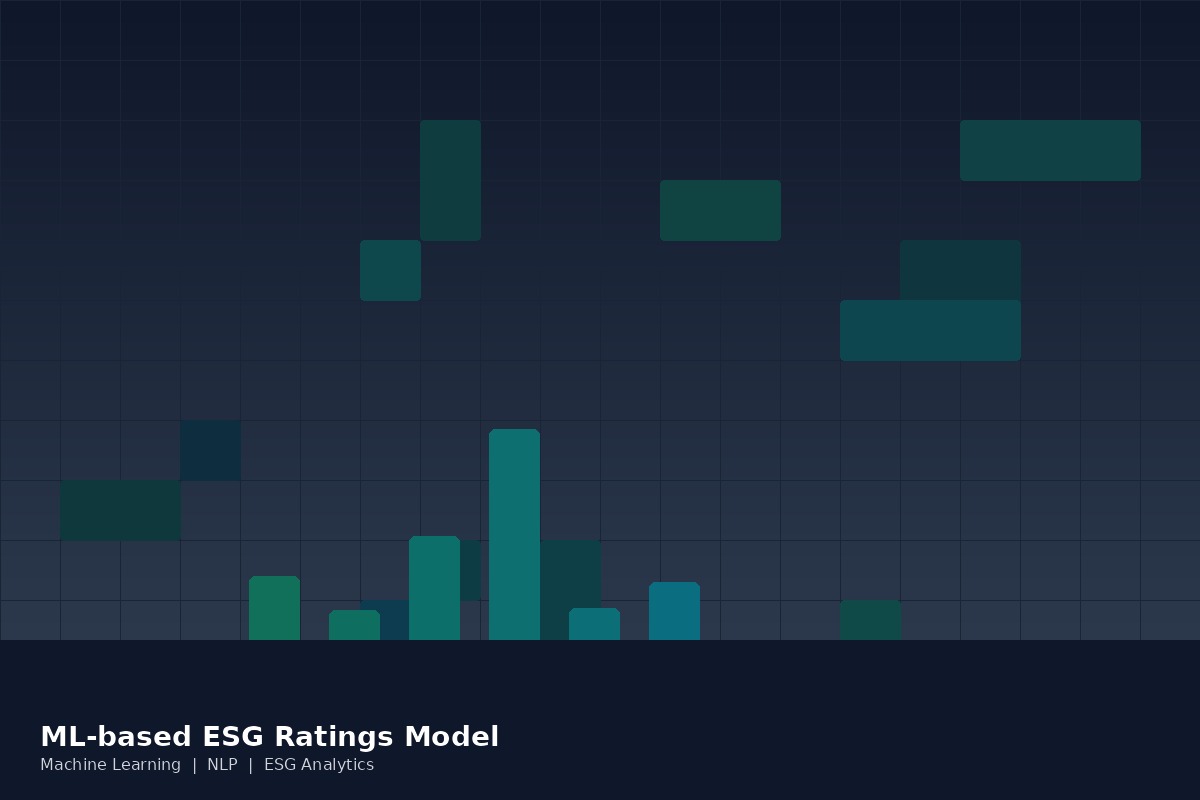ML-based ESG Ratings Model
Developed machine learning model for ESG ratings using NLP and big data analytics for ESG performance evaluation
Overview

Can machines evaluate how well companies perform on environmental, social, and governance (ESG) criteria? This project, conducted through the Aju Research Institute of Corporate Management (committee membership since January 2022), developed a machine learning model that automatically assigns ESG ratings by analyzing large volumes of unstructured data — news articles, corporate disclosures, and social media.
Approach
Rather than relying solely on self-reported corporate data, we built NLP pipelines to extract ESG-relevant information from diverse media sources in Korean. Machine learning models were trained to classify this information across E, S, and G dimensions and aggregate it into composite ratings that could be compared against traditional rating agency assessments.
The key innovation was using text mining to capture ESG signals that might be missed by conventional, survey-based rating methodologies — particularly for smaller companies with limited ESG disclosures.
Publication
Related research was published in the Asia-Pacific Journal of Business (2022), co-authored with Kang Yun Sik and Yoon Bohyun, examining the relationship between ESG information, media coverage biases, and market reactions.
Applications
The model can be used by institutional investors for ESG screening, by companies for benchmarking their ESG performance against peers, and by researchers studying the relationship between ESG factors and financial outcomes in the Korean market.
Collaborators
- Aju Research Institute of Corporate Management: Lead research partner
- Cheju Halla University: Technical development and NLP research